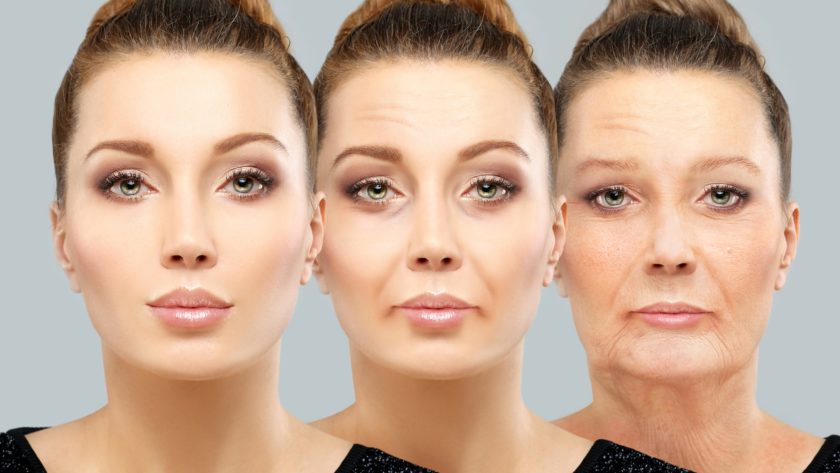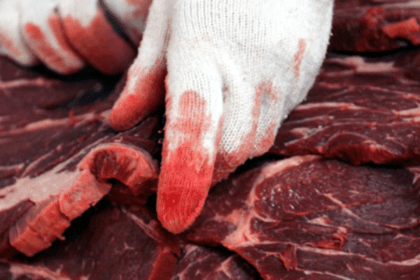If you’ve ever moaned, “Ugh. It’s tough growing old.”, you’re likely in pain or you can’t do the things you used to do. But all is not lost! You can control how well you feel and how fast you age. However, before laying out the foundation of youth, here’s why your body is aging in the first place.

Blame It On Blood Sugar
One of the key suspects in what causes your cells to deteriorate is your own circulating blood sugar (glucose). In a process called glycation, these glucose molecules cling to proteins, and a chain of chemical reactions take place in your body. The end result? Proteins clump together, known as crosslinked proteins, which accumulate over time and disrupt the normal functioning of your cells.
Advanced Glycation End Products (AGEs)
These “crosslinks”, also known as advanced glycation end products (AGEs) or glycotoxins, seem to ‘stiffen’ tissues. A stiff body is an aging body. But remember my mantra: “Your age is a given. Growing old is an option.” So don’t throw up your hands just yet. Read on…
Why You Get Stiff
Collagen is the most common and longest living protein molecule in your body. Skin care companies spend billions of dollars trying to replicate it and sell it as their revolutionary secret to erasing wrinkles. Collagen provides structure and support to not only your skin, but to your joints and organs as well.
In addition to AGEs, the following factors promote the breakdown of collagen resulting in skin laxity and wrinkling:
- Hormone loss (estrogen levels decline after menopause)
- Sun exposure
- Cigarette smoke
- Pollution
- Other sources of free radicals
The condition of your skin is a good reflection of what’s going on internally. When glucose binds with collagen (part of the aging process), collagen loses its suppleness and becomes less flexible. As a result, your skin, lungs, arteries, tendons, and other tissues stiffen. Stiff = Less efficient. For example, when your arteries are stiff, they lose their contractility and can’t pump as much blood through them due to their limited inability to expand and contract.
Age-Related Diseases Linked to AGEs
Stiff tissues can contribute to the development and progression of the following age-related diseases:
- Cataracts (clouding of the lenses of the eye)
- Nephropathy (reduced kidney function)
- Alzheimer’s disease
- Atherosclerosis (hardening of the arteries): AGEs trap LDLs in the endothelium (the inner lining of your blood vessels)
 Unfortunately, these diseases start to surface at an earlier age if you have diabetes (hyperglycemia). Diabetics have high levels of circulating glucose in their blood. Diabetes is sometimes considered an “accelerated model of aging”. Type 2 diabetes primarily occurs as a consequence of poor diet, obesity and lack of exercise. Much of the research on crosslinking has been targeted on the correlation between diabetics and aging.
Unfortunately, these diseases start to surface at an earlier age if you have diabetes (hyperglycemia). Diabetics have high levels of circulating glucose in their blood. Diabetes is sometimes considered an “accelerated model of aging”. Type 2 diabetes primarily occurs as a consequence of poor diet, obesity and lack of exercise. Much of the research on crosslinking has been targeted on the correlation between diabetics and aging.
Anti-AGEing Defense
Your body fights glycation with your immune cells (macrophages) that have special AGE receptors. When AGEs are detected, your macrophages surround the AGEs, attack them, and break them down. Once the crosslinked proteins are ‘unlinked’, they make their way into your bloodstream, travel to your kidneys and are then eliminated through your urine.
Your kidneys become less functional and your macrophages become more inactive as you age. So unfortunately, it’s more difficult for your natural defense system to win the battle against the AGEs when you get older. If you have chronic kidney disease, AGEs can more readily accumulate in your body and make you more susceptible to serious diseases. So being vigilant about controlling AGEs is essential.
More to come… “De-AGE Your Diet”
 Dietary advanced glycation end products (dAGEs) are known to increase chronic systemic inflammation which is linked to the epidemic rise in cardiovascular disease and diabetes. Find out which foods are highest in dAGEs and which cooking methods cause more AGEs to form on your food.
Dietary advanced glycation end products (dAGEs) are known to increase chronic systemic inflammation which is linked to the epidemic rise in cardiovascular disease and diabetes. Find out which foods are highest in dAGEs and which cooking methods cause more AGEs to form on your food.
Source:
Biochemistry and Aging. National Institute on Aging. November 2007.





